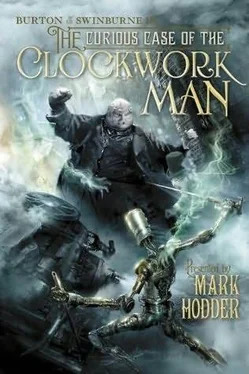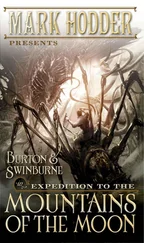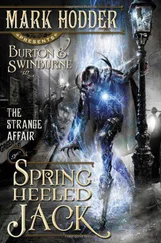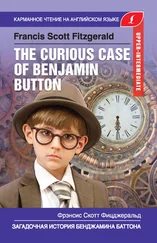Mark Hodder - The curious case of the Clockwork Man
Здесь есть возможность читать онлайн «Mark Hodder - The curious case of the Clockwork Man» весь текст электронной книги совершенно бесплатно (целиком полную версию без сокращений). В некоторых случаях можно слушать аудио, скачать через торрент в формате fb2 и присутствует краткое содержание. Жанр: Детективная фантастика, на английском языке. Описание произведения, (предисловие) а так же отзывы посетителей доступны на портале библиотеки ЛибКат.
- Название:The curious case of the Clockwork Man
- Автор:
- Жанр:
- Год:неизвестен
- ISBN:нет данных
- Рейтинг книги:3 / 5. Голосов: 1
-
Избранное:Добавить в избранное
- Отзывы:
-
Ваша оценка:
- 60
- 1
- 2
- 3
- 4
- 5
The curious case of the Clockwork Man: краткое содержание, описание и аннотация
Предлагаем к чтению аннотацию, описание, краткое содержание или предисловие (зависит от того, что написал сам автор книги «The curious case of the Clockwork Man»). Если вы не нашли необходимую информацию о книге — напишите в комментариях, мы постараемся отыскать её.
The curious case of the Clockwork Man — читать онлайн бесплатно полную книгу (весь текст) целиком
Ниже представлен текст книги, разбитый по страницам. Система сохранения места последней прочитанной страницы, позволяет с удобством читать онлайн бесплатно книгу «The curious case of the Clockwork Man», без необходимости каждый раз заново искать на чём Вы остановились. Поставьте закладку, и сможете в любой момент перейти на страницу, на которой закончили чтение.
Интервал:
Закладка:
He spotted a familiar face.
“Hi! Quips!” he called, waving his cane.
Oscar Wilde, nine years old, orphaned by the never-ending Irish famine and earning his daily crust by selling newspapers, was loitering outside a sweet shop.
“Top o’ the morning to you, Captain!” He smiled, revealing crooked teeth. “Help me to choose, would you? Bullseyes or barley sugars? I'm after thinking barley sugars.”
“Then I agree, lad.”
Oscar pulled off his battered top hat and scratched his head.
“Ah, well now, whenever people agree with me I always feel I must be wrong. So I suppose it'd better be bullseyes!” He sighed. “Or maybe both. It seems to me that the only way to get rid of a temptation is to yield to it. Don't you think so, Captain Burton?”
The explorer chuckled. Young Oscar had a remarkable way with words-thus his nickname.
“Are you flush, young ‘un?”
“Aye, I am that. My pockets are heavy with coins, so they are. I sold out in less than an hour. It seems everyone in London is after having a newspaper this morning. Have you seen the news yourself, sir?”
“Not yet. I've had my nose in books.”
“Then you must be the exception that proves the rule, for I have it in mind that the difference between literature and journalism is that journalism is unreadable and literature is not read!”
“I suppose the Tichborne business is still making the headlines?”
A nearby organ grinder started to squeeze out something approximating a tune on his tatty machine. Oscar winced and raised his voice: “I'll say! It has all the classes gossiping-from high lords to low layabouts! Everyone has an opinion!”
“What's the latest?” Burton shouted above the unmelodious groans, squeaks, wails, and whistles.
“The Claimant arrived in Paris and his mother has recognised him!”
“By James! Is that so?”
The Tichborne affair was a huge sensation-and one that touched a sensitive area of Burton's life, for the family was connected by marriage to the Arundells, to whom Isabel, his ex-fiancee, belonged.
The Tichbornes were one of the oldest families in the southern counties, but the estate's fortunes had dwindled considerably over the past two or three generations-due, it was rumoured, to an ancient curse. In recent years, the continuation of the line had depended upon two heirs. The eldest, Roger, was a fairly typical example of an ill-educated aristocrat, while his younger brother, Alfred, was even more vacuous, and a gambler, too. Roger had offered the greatest hope for the family until, disastrously, he was lost at sea in 1854, while sailing back from South America to claim the baronetcy after the death of his father. So it was Alfred who became the latest in the long line of Tichborne baronets, and he almost ran the estate-near Winchester in Hampshire-into the ground. Money trickled through his fingers like water. His mother, Lady Henriette-Felicite, was French. She'd not enjoyed a happy marriage and had retreated to Paris long before her husband died. From a distance, she kept a close eye on the diminishing Tichborne coffers, and when the situation became so dire that she feared Sir Alfred would make a pauper of her, she sent a family friend, Colonel Franklin Lushington, to live at Tichborne House and take control of the estate's finances. Lushington had managed to curb her son's worst excesses, but what he couldn't do was turn the young baronet into a good prospect for marriage.
Sir Alfred would almost certainly be the last Tichborne.
Then something totally unexpected happened.
A year ago, while the Dowager Lady Henriette-Felicite was visiting Tichborne House, a down-on-his-luck Russian sailor came begging for alms. The old lady, by this time frail and feeble-minded, asked him if he'd ever heard of La Bella, the ship that took her eldest to the bottom of the ocean. The sailor had not only heard of it but also knew that a small group of survivors had been rescued from a longboat bearing its name. They'd been landed in Australia.
Lady Henriette-Felicite immediately placed advertisements in the Empire and a number of Australian newspapers.
A month ago, she'd received a response in the form of a badly written and misspelled letter.
It was from Roger.
He was alive.
He told her he'd been living under the name “Tomas Castro,” and was working as a butcher in Wagga Wagga, New South Wales, about halfway between Sydney and Melbourne.
He asked his mother to send him money so he could come home, and, as evidence that he-the author of the letter-truly was her son, he referred to a brown birthmark upon his side. The dowager remembered the blemish and sent the money.
Now, it seemed, the man the newspapers had dubbed “the Claimant” had met the old woman and she'd confirmed his identity.
The long-lost Roger Tichborne had returned!
As Oscar explained to Burton, the upper classes were delighted that an ancient family was restored, while the lower classes were celebrating the fact that an aristocrat had been living as a common labourer.
Dowager Lady Henriette-Felicite was bursting with joy. The rest of the Tichborne family-the cousins and assorted relatives, most of whom bore the surnames Doughty or Arundell-were not.
They didn't believe a word of it.
“He'll be over to assert ownership of the estate soon!” Oscar shouted, as the barrel organ screamed and belched.
Burton nodded thoughtfully, pulled a sixpence from his pocket, and pushed it into the urchin's palm.
“I'll see you later, Quips,” he said. “Here's a coin for a pie. You can't live on sweets alone!”
“I can get plump trying! Thank you, Captain!”
Oscar disappeared into the shop, and Burton walked on, relieved to hear the organ music fading into the background.
On the corner of Baker Street, he waved down a hansom, which, pulled by a puffing steam-horse-like a smaller version of the famous Stevenson's Rocket-took him along Wigmore Street and halfway down Regent Street before jolting to a halt when its crankshaft snapped and punched a hole in the boiler. Dismissing the driver's apologies, he hailed another and continued on through Haymarket to Whitehall and Scotland Yard.
Mounting the steps of the forbidding old edifice, he was encountered going up by Detective Inspector Trounce, who happened to be on his way down.
“Well met!” the policeman declared.
“I was just coming to pick your brains,” said Burton, shaking his friend's hand.
“I'm off to put the wind up Freddy Blue, the pawnbroker. Care to tag along?”
“Rightio. Why? What's he done?”
They descended the steps and set off toward Trafalgar Square.
“A little bird told me he's started to fence stolen property again.”
“A parakeet?”
Trounce shook his head. “No, Cock Sparrow, the child pickpocket. What was it you wanted to jiggle my grey matter about?”
They skirted around the edge of the square and entered Northumberland Avenue, which was clogged with traffic as delivery wagons trundled up from riverside, heading into the centre of the capital.
“I was wondering what you might know about the Tichborne Claimant.”
“Only what I've read in the papers.”
“That's all? You mean Scotland Yard isn't looking into it?”
“Why should we? No charges have been brought against anyone. What's your interest, Captain?”
“To be frank, I haven't any. It's little more than newspaper sensationalism, as far as I can see. Pam, unfortunately, has other ideas.”
“Palmerston? Why would it concern the prime minister?”
“Who knows? The man's brain is as unfathomable as one of those babbage devices.”
Trounce made a sound of agreement. “Incidentally,” he said, “you should have seen the men he sent to collect the babbage we found at the priory on the night of the Brundleweed raid. They were like a couple of blessed morticians!”
Читать дальшеИнтервал:
Закладка:
Похожие книги на «The curious case of the Clockwork Man»
Представляем Вашему вниманию похожие книги на «The curious case of the Clockwork Man» списком для выбора. Мы отобрали схожую по названию и смыслу литературу в надежде предоставить читателям больше вариантов отыскать новые, интересные, ещё непрочитанные произведения.
Обсуждение, отзывы о книге «The curious case of the Clockwork Man» и просто собственные мнения читателей. Оставьте ваши комментарии, напишите, что Вы думаете о произведении, его смысле или главных героях. Укажите что конкретно понравилось, а что нет, и почему Вы так считаете.












